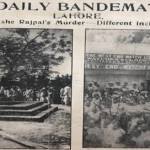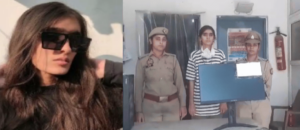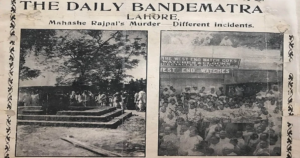Secret IAEA documents were circulated among Iranian officials to prepare cover stories about the country’s nuclear program.

Iranian nuclear documents seized by the Mossad in 2018 included secret records from the International Atomic Energy Agency (IAEA) that Iran had accessed and used to create cover stories to hide parts of its nuclear program, The Wall Street Journal reported on Wednesday.
Middle East intelligence officials told the WSJ that the IAEA documents, marked confidential, and accompanying Iranian records were circulated between 2004 and 2006 among senior Iranian military, government and nuclear officials.
David Albright, president of the Institute for Science and International Security and a former UN weapons inspector, told the WSJ that Iran’s acquisition of the IAEA documents “represents a serious breach of IAEA internal security.”
“A serious breach of IAEA internal security.”
David Albright, president of the Institute for Science and International Security
“Iran could design answers that admit to what the IAEA already knows, give away information that it will likely discover on its own, and at the same time better hide what the IAEA does not yet know that Iran wants to keep that way.”

Among the documents were handwritten notes in Persian and attachments with Iranian commentary on the IAEA documents. Documents reviewed by the WSJ stated that Iranian officials credited unspecified “intelligence methods” for obtaining the confidential records.
In a note on an Iranian corporate record, a top Iranian official pressed Mohsen Fakhrizadeh, the father of Iran’s nuclear weapons program who was assassinated in 2021, to create a “scenario” to explain to the IAEA why corporate-registration records had been changed for a civilian company Iran had claimed was working on a uranium mine.
While the company was recorded in Iranian documents as having ceased to exist in December 2001, one of the documents seen by the WSJ ordered Iranian officials to change that date to May 2003. This change allowed Iran to tell the IAEA that the work on the uranium mine was carried out by the civilian company for Iran’s Atomic Energy Organization, which supported Iran’s claim that the mine was civilian and unrelated to any military nuclear work.
Middle Eastern intelligence officials and former IAEA officials told the WSJ that the mine was built to be able to produce material for a potential nuclear weapons program.
n May, 2004, Iran’s intelligence service also circulated an internal IAEA report to senior officials to prepare them for a planned inspection of a heavy water production site southwest of Tehran near the town of Arak. Tehran claimed the site was being used for medical and research use. Heavy water reactors use heavy water as a coolant and produce plutonium, which can be used in nuclear weapons, as a waste product.
Ali Shamkhani, then defense minister and now Iran’s national security chief, was one of the officials alerted to the IAEA records and received scans of 27 pages of classified documents.
A 114-page set of IAEA reports was also acquired by Iran describing uranium-conversion work that the agency said Iran was carrying out, according to the WSJ. The file also included reports on nuclear material Iran had received from China. Fakhrizadeh and his deputy, then AEO head Fereydoon Abbasi, received the file.
Another Iranian document seen by the WSJ showed the steps Iran took to keep a container with radiation-monitoring equipment away from IAEA inspectors.
Another IAEA document included questions about Iran’s “Green Salt” project, which aims to produce tetrafluoride, an intermediate step in the process of producing feed material for uranium enrichment. The IAEA was concerned that such a project could allow Iran to produce nuclear fuel in a secret site.
Earlier this year, Iran and the IAEA announced a deal in which Iranian officials would provide more comprehensive responses to the agency’s questions about evidence the Mossad presented from its seizure of Iranian documents in 2018.
IAEA chief Rafael Grossi stated on Wednesday that talks concerning receiving explanations about the evidence are at a “very difficult juncture.” The IAEA has not yet received satisfactory answers on the issue.
Prime Minister Naftali Bennett stated on Wednesday that the WJS report was “additional proof of Iranian efforts to advance toward achieving nuclear weapons.”
“The exposure of Iran’s systematic program to deceive the IAEA – which was based around documents that Iran stole from the IAEA – is a wake-up call to the world.”
‘The systematic policy of fraud, theft and concealing evidence by Iran against the IAEA should now become a definitive fact in the eyes of the international community,’ Bennett said.
“Apart from the deception, the documents attest to prohibited and ongoing nuclear activity, which reveals new issues that demand investigation,” he explained.
“In light of the foregoing, the time has come for the IAEA Board of Governors to issue a clear message to Iran: Enough!,” Bennett added.
Iranian officials have admitted military aims for a nuke program in the past
Despite Iran’s insistence that its nuclear activity is for peaceful purposes only, former Iranian MP Ali Motahari revealed in April that Iran “from the very beginning” aimed to make a nuclear bomb, in an interview with the Iran Student Correspondents Association.
“From the very beginning, when we entered the nuclear activity, our goal was to build a bomb and strengthen the deterrent forces, but we could not maintain the secrecy of this issue, and the secret reports were revealed by a group of hypocrites,” he said. he said.
The former MP stressed that a country that wants to make peaceful use of nuclear power “never starts with enrichment,” but instead first builds a reactor and then enters the field of enrichment. “To do enrichment directly creates the illusion that we want to make a bomb.”
“If we, like Pakistan, could secretly make and test bombs, it would be very deterrent,” Motahari told ISCA. “When we started something, we should have seen it to the end.”
The former MP stressed, however, that Iranian Supreme Leader Ali Khamenei is now of the opinion that producing nuclear weapons is forbidden. The ISCA interviewer also referenced an earlier comment by Motahari that Tehran could still make a nuclear bomb, despite Khamenei’s fatwa (Islamic religious decree) against such weapons, because the fatwa only forbids the use of a bomb, not the creation of one.
An official from the Iranian Atomic Energy Organization denied the statements by Motahari on Monday, saying that “the peaceful nuclear program of the Islamic Republic of Iran has never ever been militarily oriented and the statements of irresponsible people are due to ignorance or their specific political approach ,” according to Noor News.
“Charging our country with accusations of secrecy in nuclear activities is an action that the enemy has been pursuing for years to limit our peaceful nuclear program and has never been able to prove it,” the official said.
In November, the former head of the AEOI, Fereydoun Abbasi-Davani, hinted that assassinated Iranian nuclear scientist Mohsen Fakhrizadeh had worked on a nuclear weapons program, telling IRNA that he worked with Fakhrizadeh on “nuclear defense.”
In April, a diplomatic source stated that Iran is close to having enough enriched uranium for a weapon, with Jerusalem’s assessment being that Iran is close to having a significant quantity of uranium enriched to 60%.
Earlier this month, former Israeli atomic energy chief Gideon Frank stated that Iran is not likely to cross the nuclear threshold in the near future, saying “The question of whether Iran will decide to go for a nuclear weapon is very complicated. My opinion is that they will not.”









More Stories
Why are right-wing parties winning the European Union elections?
Why is the weather pattern changing in countries around the world?
Pakistan Retaliatory Strikes In Iran, Day After Warning of “Consequences”